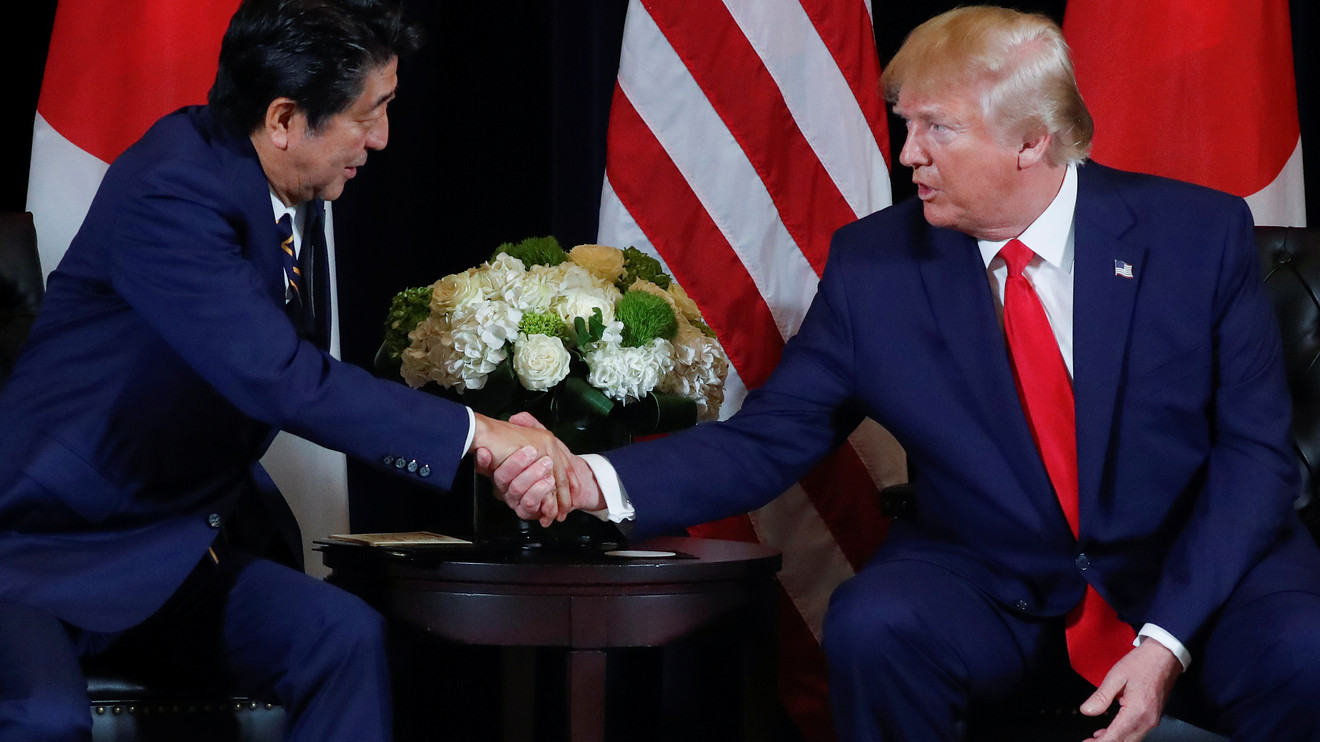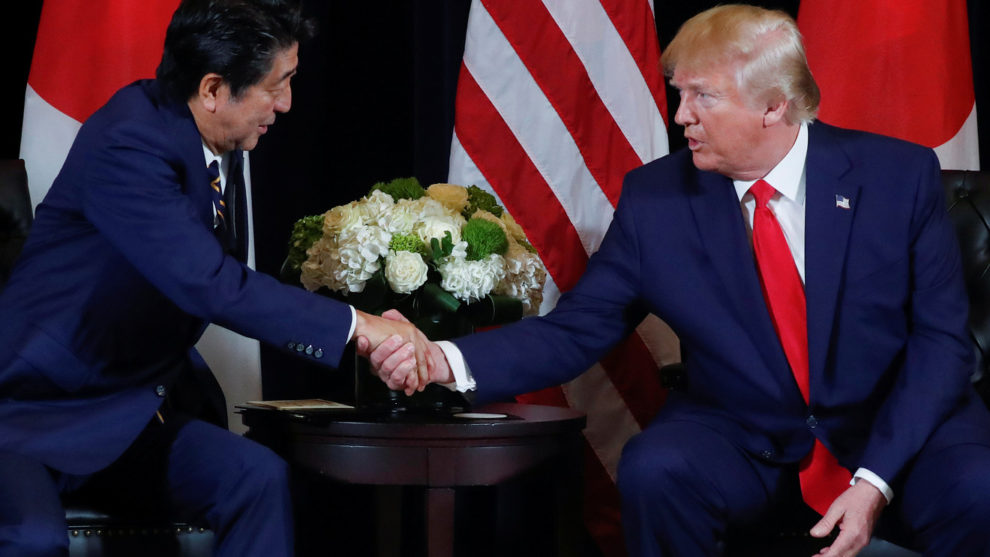
The U.S. and Japan on Wednesday signed a limited trade deal that will eliminate tariffs and expand market access on farm, industrial and digital products. But the deal does not address autos, a key sticking point during months of contentious negotiations, and President Donald Trump indicated the two countries were still working on a broader agreement.
The trade agreement helped set a positive tone for stocks in Asia Thursday, with Tokyo’s Nikkei NIK, +0.42% and Hong Kong’ Hang Seng HSI, +0.37% indexes leading the way with 0.5% gains. Chinese stocks SHCOMP, +0.23% 399106, -0.59% were also higher, up about 0.4%.
Trump and Japanese Prime Minister Shinzo Abe signed the trade deal on the sidelines of the U.N. General Assembly. Trump called it the “first stage of a phenomenal new trade agreement” and described it as “outlining the significant steps we’re taking toward a fair and reciprocal trade agreement.”
“This is a big chunk, but in the fairly near future we’re going to be having a lot more comprehensive deals signed with Japan,” Trump said.
Abe said the agreement is good for both countries.
“We have successfully covered a wide range of areas, including not only the industrial goods, but also the agricultural products and also the digital trade between the two sides,” Abe said.
Trump has been seeking a bilateral agreement with Japan, the world’s third largest economy, since pulling out of the Trans-Pacific Partnership trade deal after he took office. Washington would like to reduce a chronic trade imbalance that totaled $67.6 billion in 2018, according to U.S. figures.
The two sides reached a basic agreement in late August, but a major point of contention has been autos.
Japan is worried that Trump might slap new tariffs on its automobiles, which make up a significant amount of its exports to the U.S. Japan also has pushed to eliminate the current 2.5% auto and auto parts tariff.
Speaking to reporters later Wednesday, Abe said he received assurances from Trump that a previous agreement not to place more tariffs on Japanese autos or auto parts still stands.
“Between President Trump and myself, this has been firmly confirmed that no further additional tariffs will be imposed,” Abe said.
New Zealand’s largest company Fonterra once had grand ambitions to dominate the world’s dairy markets, but after suffering stinging losses to the value of its businesses abroad has scaled back its vision.
Fonterra FCG, +4.97% on Thursday announced its worst-ever annual result as it wrote down the value of its assets by hundreds of millions of dollars and promised to stay more focused on its roots on New Zealand dairy farms.
The company announced an after-tax loss of 605 million New Zealand dollars ($380 million) for the year ended July, compared to a loss of NZ$196 million the previous year. The loss included write-downs of NZ$826 million.
Owned cooperatively by 10,000 farmers, the company is the most important to New Zealand’s economy and is responsible for some 25% of New Zealand’s exports. New Zealand stocks NZ50GR, -0.18% were moving slightly higher early Thursday, up just under 0.1%.
China’s pork-price gains have slowed amid early signs of recovery in pig farming ahead of the coming National Day holiday, an official said.
Weekly increases in pork prices have been moderating, with prices up 8.6%, 6.3%, 3.4% and 1.6%, respectively, during the previous four weeks ended Sept. 20, said Yang Zhenhai, an official with the Ministry of Agriculture and Rural Affairs, in a statement posted on the central government’s website on Wednesday.
In recent weeks, authorities have rolled out a series of measures to ease a supply shortage due to an outbreak of African swine fever, including farming incentives, opening its emergency pork reserves and increasing pork imports.
The story was compiled from Dow Jones Newswires and Associated Press reports.











Add Comment